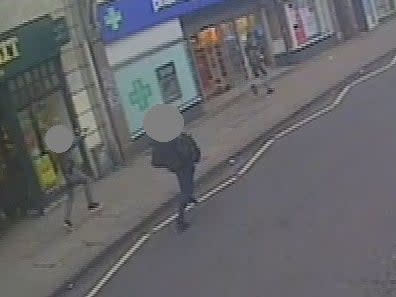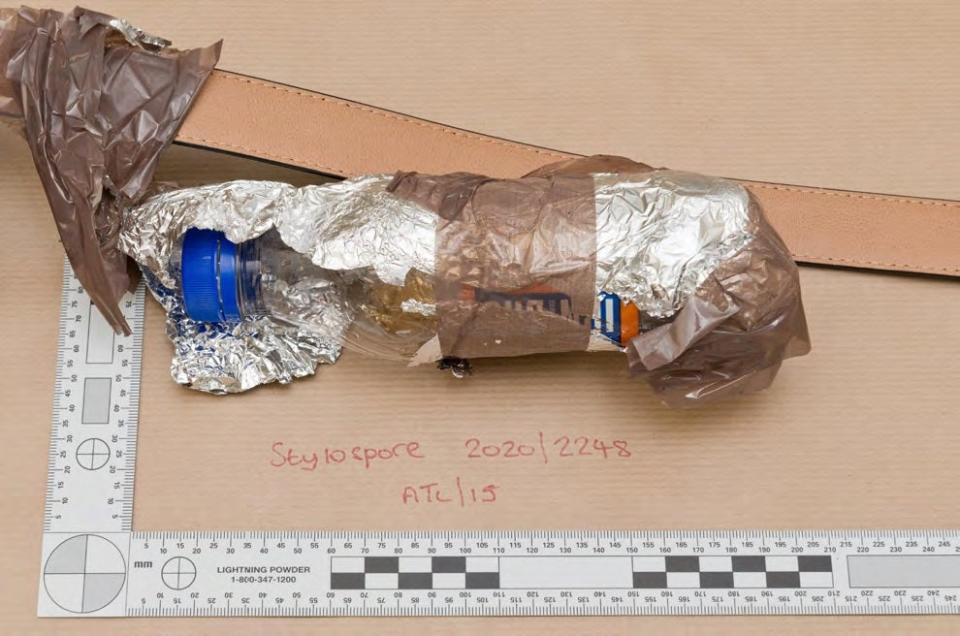Police and MI5 dubbed Streatham terrorist ‘one of the most dangerous individuals ever investigated’ before attack

MI5 and police believed the Streatham terrorist was “one of the most dangerous individuals” ever investigated before he went on a knife rampage, an inquest has heard.
Counter-terror police had officially stated their view that a terror attack by Isis supporter Sudesh Amman was a matter of “when, not if” after he was released from prison, but failed to prevent it.
Undercover officers were following metres behind Amman when he stole a knife from a shop and launched his attack, stabbing two people before being shot dead by police.
Reports drawn up before the attack on 2 February 2020 said that Amman’s imprisonment at HMP Belmarsh for previous terror offences had made him more dangerous after he socialised with high-profile terrorists.
The inquest into his death heard that Amman launched the attack 10 days following his release on a sentence for spreading terrorist propaganda.
A probation official recalled that in a meeting involving police and the security services, she was told that an attack “would be when, not if”.
The meeting took place on 9 January 2020, two weeks before Amman’s release and less than a month before the attack.
Carina Heckroodt, head of a specialist wing of the National Probation Service that deals with extremists, was at the “joint operational team” meeting alongside counter-terror police and MI5.
“During this meeting, the police said that Amman was a high threat and that an attack would be when, not if,” she recalled in a statement.
An intelligence update drawn up by the Metropolitan Police Counter Terrorism Command ahead of the meeting detailed Amman’s extremist activity inside prison, including a written pledge of allegiance to Isis, and stated wish to carry out a terror attack.
It said he had associated with high-profile terrorists, including an occasion where he was seen in “deep conversation” with the Parsons Green bomber Ahmed Hassan.
“The collective view of the senior investigating officer, investigation team and all partner agencies [including MI5] is that he represents one of the most dangerous individuals that we have investigated,” the document added.

“Before he was imprisoned he was operating as a lone extremist without a network of like-minded extremists. Since being in prison this situation has changed and he has now built up relationships with other terror offenders and thereby presents a heightened risk.”
An “investigative strategy” document drawn up on 10 January said terrorists inside HMP Belmarsh had given Amman contact details for associates outside the prison, adding: “There is a significant risk that Amman now has the capability to carry out an attack.”
Police wrote to the governor of HMP Belmarsh to ask if Amman’s release could be delayed, but were told it could not.
The concerns meant that Amman, then 20, was put under surveillance when he was freed.
The operation discovered that he purchased items that could be used to make a fake suicide belt two days before the attack and police also observed “anti-surveillance behaviour”, but decided not to arrest Amman.
The officer who led the surveillance operation said he believed investigators would “only really have disrupted ourselves” because they would have alerted Amman to the operation, and potentially put officers and the public at greater risk.
The senior officer, who is codenamed HA6 because of an anonymity ruling, said the terrorist could only have been held for 48 hours and there was not enough evidence at that point for a charge.
“A decision was made not to arrest,” he told the inquest. “The view I took then and still hold today is that, on what we knew then from intelligence, and what our surveillance teams were seeing, we would not have enough evidence to ensure prosecution and conviction.”
HA6 said police also considered searching Amman’s room in a probation hostel to see if he had made a fake suicide vest, but could not find a way of doing it without compromising their operation.

Scotland Yard had also reviewed extremist material found in Amman’s prison cell for potential offences, but concluded that Arabic notes could not have been written by him and that the documents may not lead to a charge.
HA6 told the inquest that such operations involved “difficult decisions” on the balance between swooping early enough to protect the public, but not too early for a prosecution.
Following the potential fake suicide belt purchases of 31 January 2020, Amman was put under 24-hour armed surveillance and a set of “tipping points” where police could arrest him or intervene were drawn up.
Police asked whether Amman could be sent back to prison over the purchases, but Ms Heckroodt said he could not, after discussing the issue with a more senior probation officer.
“It was not sufficient to trigger the recall process,” she told the inquest on Thursday.
She said Amman had not breached his licence conditions or committed a criminal offence, and that the bottles, tape and foil bought were legal in themselves.
Rajiv Menon QC, representing Amman’s family, said the failure to send Amman back to prison days before the attack was “a most serious missed opportunity in this case”. However, Ms Heckroodt refuted the allegation and said an internal review concluded she made the right decision.
“I am satisfied it was the right decision at the time and there was no basis to recall on that basis [of the purchases],” she added. “It was not a missed opportunity.”
The inquest continues.
Read More
Police and MI5 missed chance to arrest Streatham terrorist two days before attack, inquest hears
Streatham attacker associated with terrorists including Manchester Arena bomber’s brother in prison
Police said attack by Streatham terrorist was matter of ‘when, not if’ before release from prison
HMP Belmarsh: The high-security prison where terrorists exchange ideas and ‘jihad banter’

